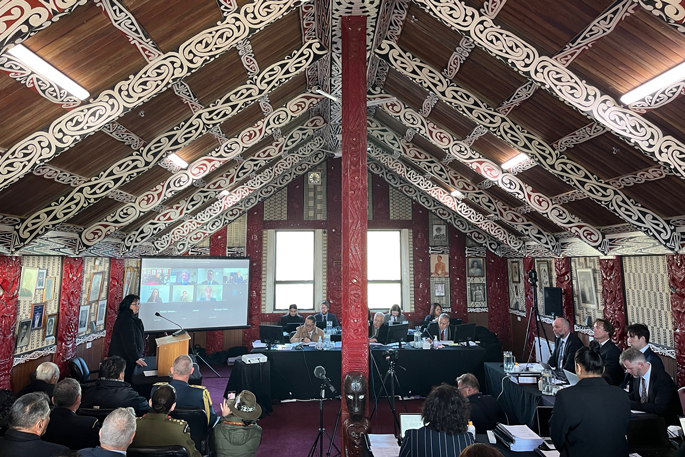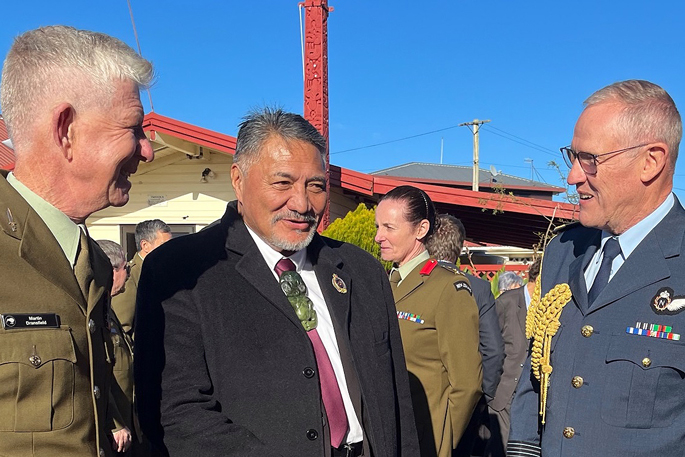The New Zealand Defence Force will hear fresh accounts of Māori military veterans’ experiences at the second hearing week of the Wai 2500 Military Veterans Kaupapa Inquiry into all claims involving past Māori military service.
The Waitangi Tribunal inquiry extends to all types of military service, whether operational or routine, in time of war or peace, and at home or abroad; undertaken directly for, or on behalf of the Crown of New Zealand or the Imperial Crown in New Zealand.
The purposes of the inquiry, in addition to determining the Treaty of Waitangi consistency of Crown conduct are to prepare an official narrative that will put Māori experiences of military service for the Crown on public record, and consider how to improve support for veterans and current serving personnel.
During this second round of hearings, held at Northland’s Mōtatau Marae, 40km south of Paihia, the tribunal will hear further evidence from claimants regarding service in Korea and South East Asia (c. 1950s – 1990s), Antarctic operations, nuclear testing and peacekeeping (c. 1950s – 2010s) and current Crown policy and practice, in relation to concerns raised by Māori ex-service people and their whānau.
Senior leaders from across the Defence Force attended the opening of this week’s hearing, including Chief of Army Major General John Boswell and Commander Joint Forces Rear Admiral James Gilmour.
“This process is about acknowledging and listening to the experiences our veterans had whilst they were in service. It’s important they and their whānau have the opportunity to share their experiences,” says Major General Boswell.
“It’s equally important that we as a Defence Force engage with our veterans and their whānau, so that we can learn from our past and find opportunities to better serve our Māori veterans, now and into the future.”
 The first week of WAI 2500 hearings took place at Tūnohopū Marae in Rotorua.
The first week of WAI 2500 hearings took place at Tūnohopū Marae in Rotorua.
Alongside the inquiry, the NZDF is conducting additional research into Māori military service. It has also held hui with veterans to provide updates on Tikanga and te reo Māori within Te Ope Kātua o Aotearoa (New Zealand Defence Force), and the use of NZDF Marae and Tūrangawaewae (a place to stand).
“It’s important we take opportunities to inform our people, veterans and other involved agencies about bicultural policies and practices in Ngāti Tūmatauenga (NZ Army), Te Taua Moana o Aotearoa (Royal New Zealand Navy) and Te Tauaarangi o Aotearoa (Royal New Zealand Air Force),” says Major General Boswell.
“This ensures veterans are better informed on the developments the NZDF has made, including in the use of service marae and tūrangawaewae. This aims to address a number of claims in the Wai 2500 Military Veterans Kaupapa Inquiry that pre-date those changes.
“We want to understand how to better provide coordinated support to Māori veterans and whānau, and to identify and prioritise research that meets their needs.
“It’s what we need to do for our people and protect them moving forward.”



0 comments
Leave a Comment
You must be logged in to make a comment.